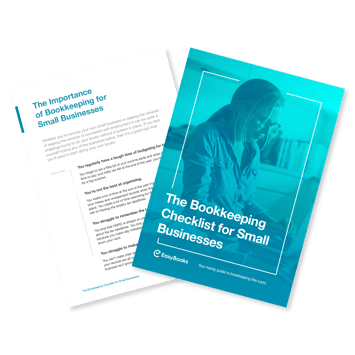No matter how successful or how big a business is, you always need a reliable bookkeeping system in place. But what is bookkeeping in accounting? Well, people often pose the question as it’s easy to get confused between the two. Here's everything you need to know about the key differences in this pos
What’s Bookkeeping?
Bookkeeping is just another word for accounting, right? Wrong. A lot of people think the two roles are the same, however, the term bookkeeping refers to recording financial transactions and activities on a daily basis.
It’s a subset of accounting which requires the following jobs to be done in order to build a financially stable business:
- Recording financial transactions.
- Posting debits and credits.
- Producing invoices.
- Maintaining and balancing current accounts, historical accounts and general ledgers.
- Completing payroll.
One of the main components of bookkeeping is managing a general ledger. This is the primary document where bookkeepers keep all their records, expenses and receipts. Recording on the ledger is known as posting. So, the more times there’s a sale or spend, the more often the ledger will be posted.
In the past, ledgers were created with basic tools like a pen and paper. However, as technology and industries have evolved, they’re now created with specialised software that can be automated and tailored to your business to meet specific requirements.
The complexity of bookkeeping software is completely down to whoever is managing it and their preferences, but it can also be formed on the size and demand of the business.
For example, a larger business that receives tens of thousands of orders per day will need a far more complex bookkeeping system than that of a small village bakery. The more transactions you need to record, the more complex your system will need to be to cope.
What’s Accounting?
The term accounting covers a much broader scope than bookkeeping. The whole topic area can be classed as accounting, whereas bookkeeping is only a part of the system that uses aspects of accounting within its practices. Accounting can cover aspects as vital as designing bookkeeping systems, establishing controls to maintain and operate the system and analysing any data too.
Accounting gives you the data your business needs to make better decisions. Not only does it cover this, but accounting also reviews financial reporting and performance, then reports back to the relevant people with this information. Business owners, shareholders, investors and many others depend on these financial reports for updates on its performance and overall success.
Accounting is mainly made up of:
- Recording expenses.
- Preparing company-wide financial statements.
- Analysing the costs of operations.
- Completing income tax returns.
- Helping the business owner in understanding the impact of financial decisions.
Accounting is mostly down to bringing key financial indicators together. The result is the gaining of a better understanding of profitability and a keen awareness of your business’ cash flow. Business owners often turn to their accountants for assistance with strategic tax planning, financial forecasting and tax filing.
Do They Work Together?
Although the two are different entities, they dovetail really well and can contribute to the great success and organisation of a business if carried out properly. Bookkeeping is just a segment of your whole accounting system. So, if your accounting is going to be as strong as it can be, your bookkeeping needs to be too.
For an accountant to be able to organise financial records properly and balance finances accurately, the information provided by the bookkeeper also needs to be correct. Otherwise, figures won’t be recorded right, meaning that records and updates will also be inaccurate.
A strong relationship between the two is necessary and can help your business really take things to the next level, especially with your organisation and communication.
Is Your Bookkeeping Up to Scratch?
As we mentioned earlier, every business needs to be on the ball when it comes to their bookkeeping, no matter how big or small they are. If you’re not sure about where your small business bookkeeping can be improved, don’t worry. We’ve put together a checklist that will make sure you’re not forgetting anything when it comes to your bookkeeping.
Download it free below.







